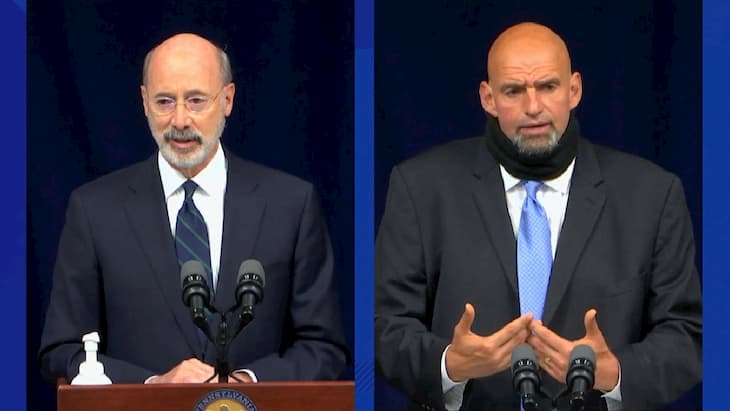
Pittsburgh Governor Tom Wolf and Lt. Governor John Fetterman are calling on the legislature to actualize the legalization of adult-use cannabis. Speaking on Thursday, the two leaders said the decision would help with the state’s economic recovery.
Helping ailing businesses
According to Pittsburgh Governor Wolf, proceeds from cannabis tax could be used to help struggling businesses in the state. The governor cited some of the benefits realized by the states that have legalized adult-use cannabis. Currently, 11 states in the USA and the District of Columbia have legalized cannabis.
Governor Wolf is optimistic legalization of recreational cannabis will also open more outlets for important restorative justice endeavors in the commonwealth. The two leaders first called on the legislature to consider adult-use cannabis legalization in September 2019. At that point, Lt. Gov. Fetterman had completed a statewide listening tour.
Alongside the call to the General Assembly to pass legislation allowing the sale and use of recreational marijuana, Gov. Wolf proposed that a fraction of the revenue be channeled to advance restorative justice programs. According to Gov. Wolf, those programs give priority to mending the injustice done to crime victims and communities because of marijuana criminalization.
Marijuana laws changing quickly
Marijuana laws have changed drastically across the US, and Pennsylvanians are not left behind. So far, recreational marijuana is still illegal in Pennsylvania. However, considering the major milestones in the cannabis industry in the past year, it’s evident that things are changing.
Earlier this year, the state introduced the Senate Bill 350, popularly referred to as the “gold standard” legalization bill. The bill epitomized the dream of cannabis advocates and both Pittsburgh Governor Tom Wolf and Lt. Gov. John Fetterman are fully behind total cannabis legalization in Pennsylvania.
While the state doesn’t allow recreational use of cannabis, it has decriminalized possession of small amounts of the substance in several cities. In 2016, Pennsylvania developed infrastructure to start regulating the medical marijuana industry after the Legislature cleared bills to monitor and tax medical weed.
Pennsylvania has more than 147,000 registered patients who are allowed to buy cannabis products from various dispensaries spread across the state. The state classifies cannabis under Schedule I drug, in the same category as heroin and LSD. It’s also considered to be a highly addictive substance with no medical value.
All the same, following the two governors’ latest recommendations, it’s only a matter of “when” and not “if” regarding recreational cannabis legalization in Pennsylvania.


